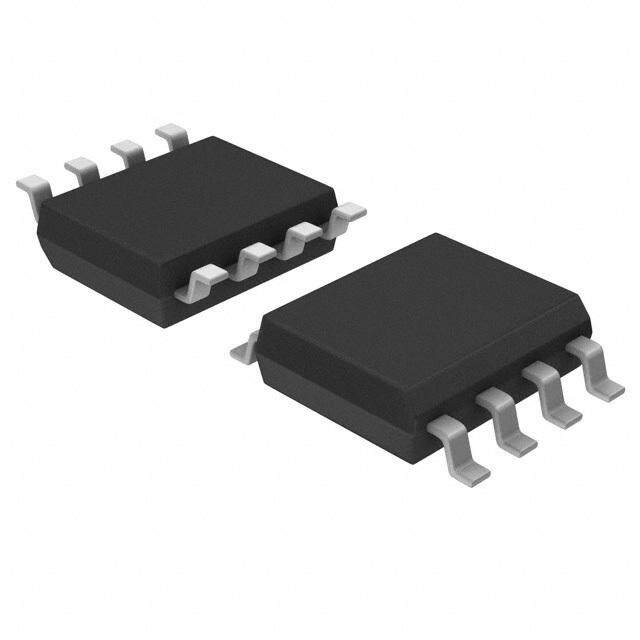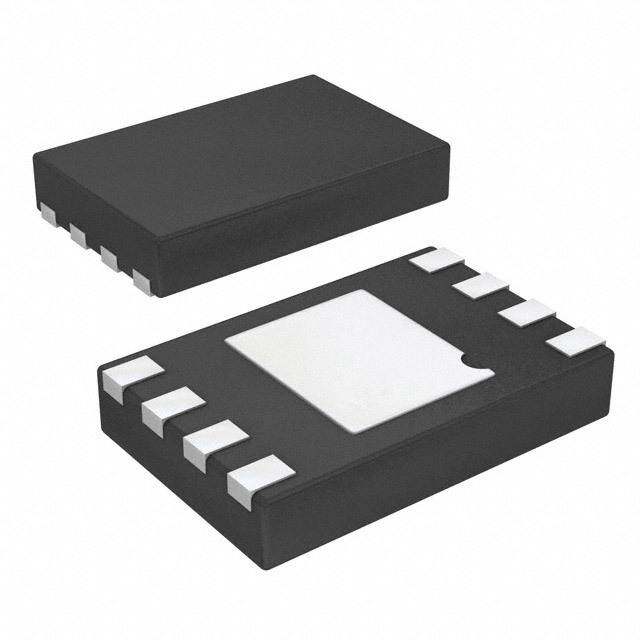ICGOO在线商城 > 传感器,变送器 > 温度传感器 - 模拟和数字输出 > LM20BIM7
- 型号: LM20BIM7
- 制造商: Texas Instruments
- 库位|库存: xxxx|xxxx
- 要求:
| 数量阶梯 | 香港交货 | 国内含税 |
| +xxxx | $xxxx | ¥xxxx |
查看当月历史价格
查看今年历史价格
LM20BIM7产品简介:
ICGOO电子元器件商城为您提供LM20BIM7由Texas Instruments设计生产,在icgoo商城现货销售,并且可以通过原厂、代理商等渠道进行代购。 LM20BIM7价格参考。Texas InstrumentsLM20BIM7封装/规格:温度传感器 - 模拟和数字输出, Temperature Sensor Analog, Local -55°C ~ 130°C 11.77mV/°C SC-70-5。您可以下载LM20BIM7参考资料、Datasheet数据手册功能说明书,资料中有LM20BIM7 详细功能的应用电路图电压和使用方法及教程。
LM20BIM7是德州仪器(Texas Instruments)推出的一款模拟输出的温度传感器,属于温度传感器中的模拟输出类型。该器件具有高精度、低功耗和小尺寸封装(SOT-23-5)的特点,适用于对空间和功耗敏感的应用场景。 LM20BIM7主要应用于便携式电子设备中,例如智能手机、平板电脑、笔记本电脑和可穿戴设备(如智能手表、健康监测设备),用于实时监测设备内部温度,防止过热并优化系统性能。此外,它也广泛用于电池管理系统(BMS),在充电和放电过程中监控电池温度,确保安全运行。 在工业控制领域,LM20BIM7可用于环境温度监测、HVAC(加热、通风与空调)系统以及小型嵌入式控制系统中,提供可靠的温度反馈。其模拟电压输出设计简化了与微控制器或ADC的接口,无需复杂的通信协议,适合成本敏感且需要快速集成的设计。 由于其工作温度范围宽(通常为-55°C 至 +130°C),LM20BIM7也适用于恶劣环境下的温度检测,如汽车电子中的非动力总成应用(如车内温控模块、传感器节点等)。 总之,LM20BIM7凭借其高精度、小体积和低功耗特性,广泛应用于消费电子、工业控制、汽车电子和电池管理等领域,是中低端温度传感需求的理想选择。
| 参数 | 数值 |
| 产品目录 | |
| 描述 | IC TEMPERATURE SENSOR SC70-5板上安装温度传感器 2.4V SC70 micro SMD Temp Sensor |
| 产品分类 | 温度传感器,变送器温度传感器 |
| 品牌 | Texas Instruments |
| 产品手册 | |
| 产品图片 |
|
| rohs | 否含铅 / 不符合限制有害物质指令(RoHS)规范要求 |
| 产品系列 | 板上安装温度传感器,Texas Instruments LM20BIM7- |
| 数据手册 | |
| 产品型号 | LM20BIM7 |
| RoHS指令信息 | |
| 产品种类 | 板上安装温度传感器 |
| 供应商器件封装 | SC-70-5 |
| 关闭 | Shutdown |
| 其它名称 | LM20BIM7CT |
| 准确性 | +/- 2.5 C |
| 制造商产品页 | http://www.ti.com/general/docs/suppproductinfo.tsp?distId=10&orderablePartNumber=LM20BIM7 |
| 包装 | 剪切带 (CT) |
| 商标 | Texas Instruments |
| 增益 | - 11.77 mV / C |
| 安装风格 | SMD/SMT |
| 封装 | Reel |
| 封装/外壳 | 6-TSSOP(5 引线),SC-88A,SOT-353 |
| 封装/箱体 | SC-70-5 |
| 工厂包装数量 | 1000 |
| 感应温度 | -55°C ~ 130°C |
| 数字输出-位数 | None |
| 数字输出-总线接口 | - |
| 最大工作温度 | + 130 C |
| 最小工作温度 | - 55 C |
| 标准包装 | 1 |
| 电压-电源 | 2.4 V ~ 5.5 V |
| 电源电压-最大 | 5.5 V |
| 电源电压-最小 | 2.4 V |
| 电源电流 | 7 uA |
| 精度 | ±2.5°C |
| 系列 | LM20 |
| 设备功能 | Sensor |
| 输出类型 | 模拟 |
| 配置 | Local |

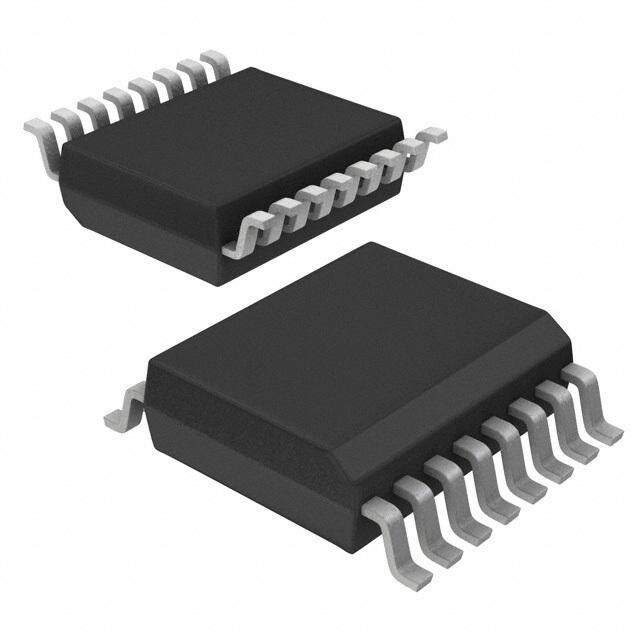

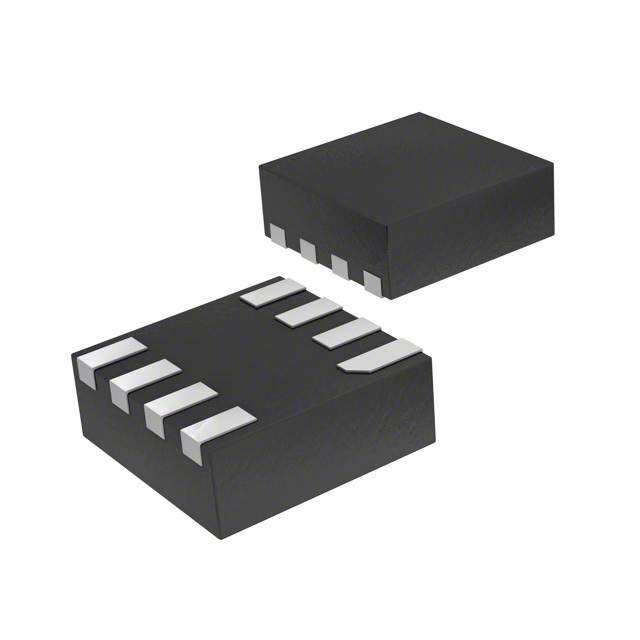
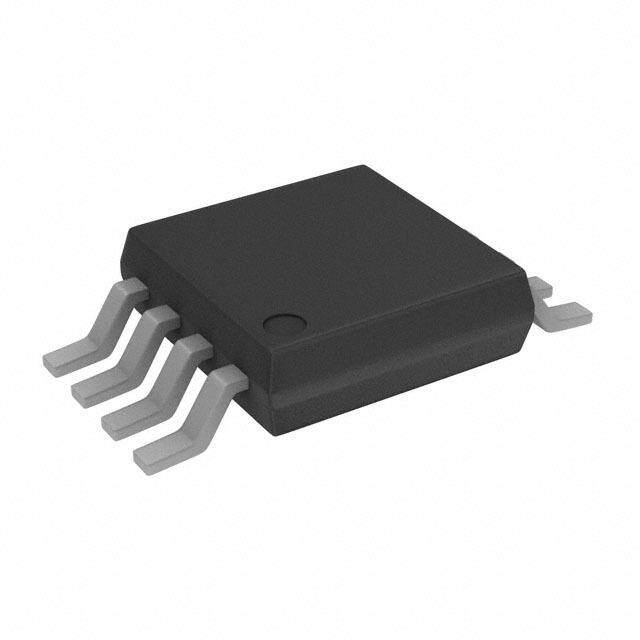
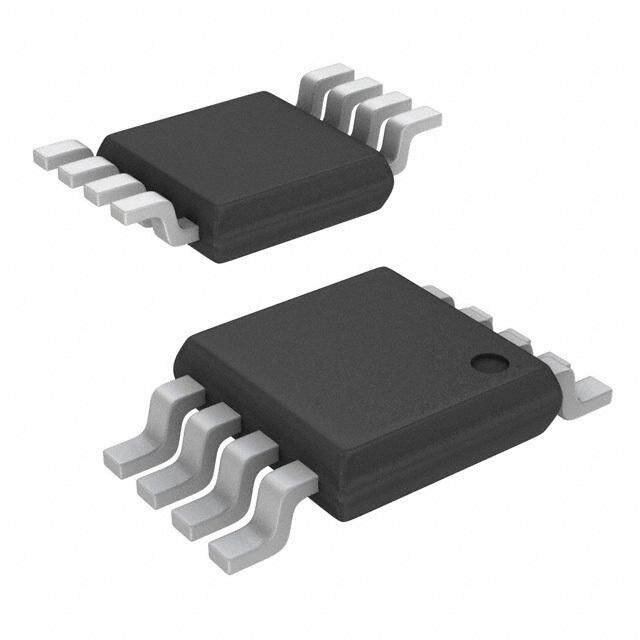
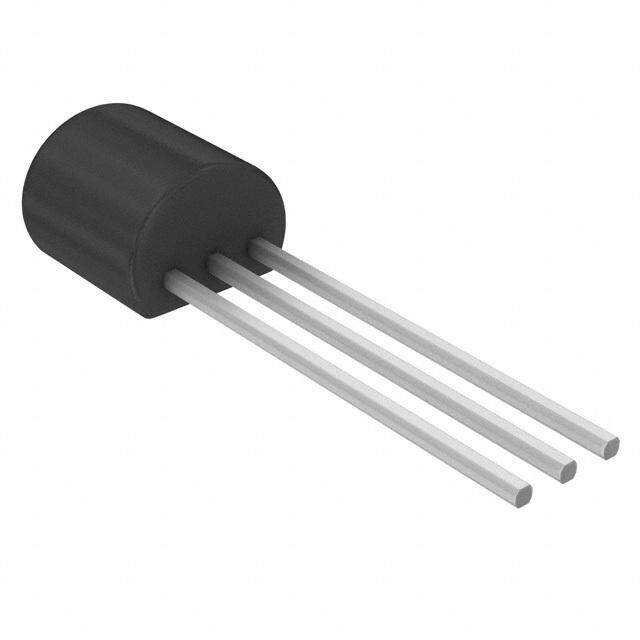

- 商务部:美国ITC正式对集成电路等产品启动337调查
- 曝三星4nm工艺存在良率问题 高通将骁龙8 Gen1或转产台积电
- 太阳诱电将投资9.5亿元在常州建新厂生产MLCC 预计2023年完工
- 英特尔发布欧洲新工厂建设计划 深化IDM 2.0 战略
- 台积电先进制程称霸业界 有大客户加持明年业绩稳了
- 达到5530亿美元!SIA预计今年全球半导体销售额将创下新高
- 英特尔拟将自动驾驶子公司Mobileye上市 估值或超500亿美元
- 三星加码芯片和SET,合并消费电子和移动部门,撤换高东真等 CEO
- 三星电子宣布重大人事变动 还合并消费电子和移动部门
- 海关总署:前11个月进口集成电路产品价值2.52万亿元 增长14.8%
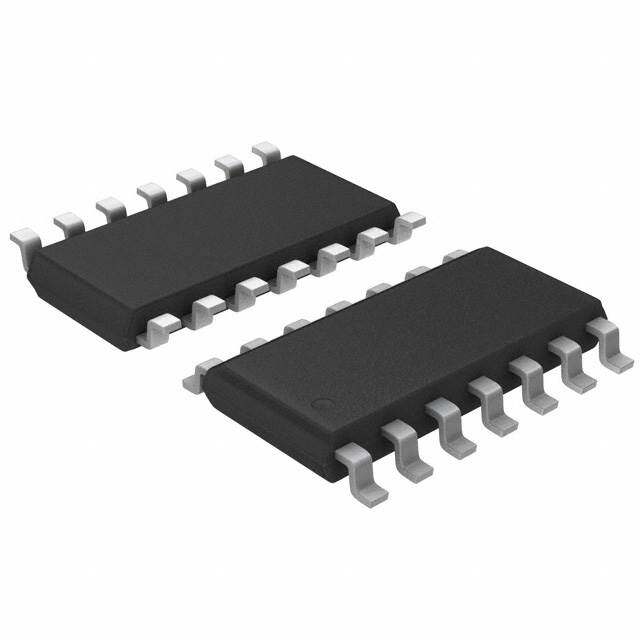
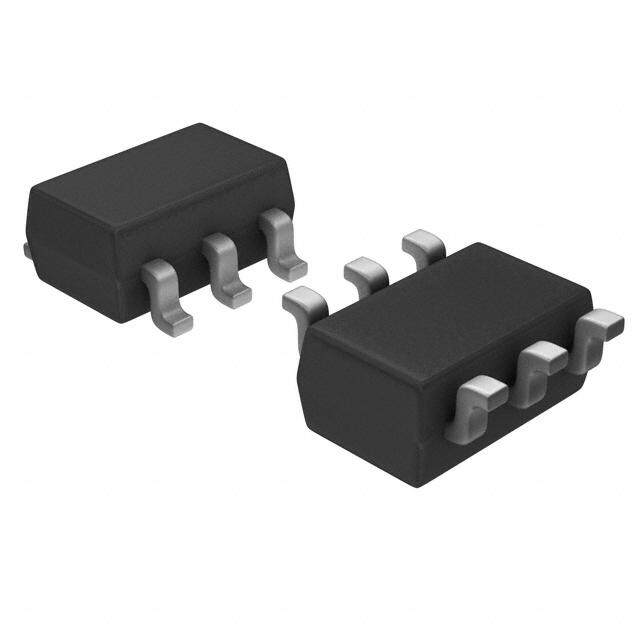




PDF Datasheet 数据手册内容提取
Product Sample & Technical Tools & Support & Folder Buy Documents Software Community LM20 SNIS106Q–DECEMBER1999–REVISEDJANUARY2015 LM20 2.4-V, 10-µA, SC70, DSBGA Temperature Sensor 1 Features 3 Description • Ratedfor−55°Cto130°CRange The LM20 is a precision analog output CMOS 1 integrated-circuit temperature sensor that operates • AvailableinSC70andDSBGAPackage over −55°C to 130°C. The power supply operating • PredictableCurvatureError range is 2.4 V to 5.5 V. The transfer function of LM20 • SuitableforRemoteApplications is predominately linear, yet has a slight predictable parabolic curvature. The accuracy of the LM20 when • Accuracyat30°C ±1.5to ±4°C(Maximum) specified to a parabolic transfer function is ±1.5°C at • Accuracyat130°Cand−55°C±2.5to±5°C an ambient temperature of 30°C. The temperature (Maximum) error increases linearly and reaches a maximum of • PowerSupplyVoltageRange2.4Vto5.5V ±2.5°C at the temperature range extremes. The temperature range is affected by the power supply • CurrentDrain10μA(Maximum) voltage. At a power supply voltage of 2.7 V to 5.5 V, • Nonlinearity±0.4%(Typical) the temperature range extremes are 130°C and • OutputImpedance160Ω (Maximum) −55°C. Decreasing the power supply voltage to 2.4 V • LoadRegulation changes the negative extreme to −30°C, while the positiveextremeremainsat130°C. 0μA< I <16μA −2.5mV(Maximum) L The LM20 quiescent current is less than 10 μA. 2 Applications Therefore, self-heating is less than 0.02°C in still air. Shutdown capability for the LM20 is intrinsic because • CellularPhones its inherent low power consumption allows it to be • Computers powered directly from the output of many logic gates • PowerSupplyModules ordoesnotnecessitateshutdown. • BatteryManagement DeviceInformation(1) • FAXMachines PARTNUMBER PACKAGE BODYSIZE(NOM) • Printers SC70(5) 2.00mm×1.25mm • HVAC LM20 DSBGA(4) 0.96mm×0.96mm • DiskDrives (1) For all available packages, see the orderable addendum at • Appliances theendofthedatasheet. SimplifiedSchematic OutputVoltagevsTemperature 1 An IMPORTANT NOTICE at the end of this data sheet addresses availability, warranty, changes, use in safety-critical applications, intellectualpropertymattersandotherimportantdisclaimers.PRODUCTIONDATA.
LM20 SNIS106Q–DECEMBER1999–REVISEDJANUARY2015 www.ti.com Table of Contents 1 Features.................................................................. 1 7.3 FeatureDescription...................................................8 2 Applications........................................................... 1 7.4 DeviceFunctionalModes..........................................9 3 Description............................................................. 1 8 ApplicationandImplementation........................ 10 4 RevisionHistory..................................................... 2 8.1 ApplicationInformation............................................10 8.2 TypicalApplications................................................11 5 PinConfigurationandFunctions......................... 3 8.3 SystemExamples...................................................14 6 Specifications......................................................... 3 9 PowerSupplyRecommendations...................... 15 6.1 AbsoluteMaximumRatings......................................3 10 Layout................................................................... 15 6.2 ESDRatings ............................................................4 6.3 RecommendedOperatingConditions.......................4 10.1 LayoutGuidelines.................................................15 6.4 ThermalInformation..................................................4 10.2 LayoutExamples...................................................15 6.5 ElectricalCharacteristics:LM20B ............................4 10.3 ThermalConsiderations........................................15 6.6 ElectricalCharacteristics:LM20C ............................5 11 DeviceandDocumentationSupport................. 17 6.7 ElectricalCharacteristics:LM20S ............................6 11.1 Trademarks...........................................................17 6.8 TypicalCharacteristics .............................................7 11.2 ElectrostaticDischargeCaution............................17 7 DetailedDescription.............................................. 8 11.3 Glossary................................................................17 7.1 Overview...................................................................8 12 Mechanical,Packaging,andOrderable Information........................................................... 17 7.2 FunctionalBlockDiagram.........................................8 4 Revision History ChangesfromRevisionP(Feburary2013)toRevisionQ Page • AddedPinConfigurationandFunctionssection,ESDRatingstable,FeatureDescriptionsection,DeviceFunctional Modes,ApplicationandImplementationsection,PowerSupplyRecommendationssection,Layoutsection,Device andDocumentationSupportsection,andMechanical,Packaging,andOrderableInformationsection .............................. 1 ChangesfromRevisionO(February2013)toRevisionP Page • ChangedlayoutofNationalDataSheettoTIFormat.......................................................................................................... 14 2 SubmitDocumentationFeedback Copyright©1999–2015,TexasInstrumentsIncorporated ProductFolderLinks:LM20
LM20 www.ti.com SNIS106Q–DECEMBER1999–REVISEDJANUARY2015 5 Pin Configuration and Functions DCKPackage 5-PinSC70 (TopView) YZRPackage 4-PinDSBGA (TopView) PinFunctions PIN TYPE DESCRIPTION NAME DSBGA SC70 Devicesubstrateanddieattachpaddle,connecttopowersupplynegative GND — 2 GND terminal.ForoptimumthermalconductivitytothePCboardgroundplane,pin 2mustbegrounded.Thispinmayalsobeleftfloating. GND A2 5 GND Devicegroundpin,connecttopowersupplynegativeterminal. NC(pin1)mustbeleftfloatingorgrounded.Othersignaltracesmustnotbe NC A1 1 — connectedtothispin. Analog V B1 3 Temperaturesensoranalogoutput O Output V+ B2 4 Power Positivepowersupplypin 6 Specifications 6.1 Absolute Maximum Ratings overoperatingfree-airtemperaturerange(unlessotherwisenoted)(1)(2) MIN MAX UNIT SupplyVoltage −0.2 6.5 V OutputVoltage −0.6 (V++0.6) V OutputCurrent 10 mA InputCurrentatanypin(3) 5 mA MaximumJunctionTemperature(T ) 150 °C JMAX Storagetemperature,T −65 150 °C stg (1) StressesbeyondthoselistedunderAbsoluteMaximumRatingsmaycausepermanentdamagetothedevice.Thesearestressratings only,whichdonotimplyfunctionaloperationofthedeviceattheseoranyotherconditionsbeyondthoseindicatedunderRecommended OperatingConditions.Exposuretoabsolute-maximum-ratedconditionsforextendedperiodsmayaffectdevicereliability. (2) SolderingprocessmustcomplywithTI'sReflowTemperatureProfilespecifications.Refertohttp://www.ti.com/packaging. (3) Whentheinputvoltage(V)atanypinexceedspowersupplies(V <GNDorV >V+),thecurrentatthatpinshouldbelimitedto5mA. I I I Copyright©1999–2015,TexasInstrumentsIncorporated SubmitDocumentationFeedback 3 ProductFolderLinks:LM20
LM20 SNIS106Q–DECEMBER1999–REVISEDJANUARY2015 www.ti.com 6.2 ESD Ratings VALUE UNIT Human-bodymodel(HBM),perANSI/ESDA/JEDECJS-001(1) ±2500 V Electrostaticdischarge V (ESD) Charged-devicemodel(CDM),perJEDECspecificationJESD22-C101(2) ±250 (1) JEDECdocumentJEP155statesthat500-VHBMallowssafemanufacturingwithastandardESDcontrolprocess. (2) JEDECdocumentJEP157statesthat250-VCDMallowssafemanufacturingwithastandardESDcontrolprocess. 6.3 Recommended Operating Conditions overoperatingfree-airtemperaturerange(unlessotherwisenoted)(1) MIN MAX UNIT LM20B,LM20Cwith 2.4V≤V+≤2.7V −30 130 °C LM20B,LM20Cwith 2.7V≤V+≤5.5V −55 130 °C LM20Swith 2.4V≤V+≤5.5V −30 125 °C LM20Swith 2.7V≤V+≤5.5V −40 125 °C SupplyVoltageRange(V+) 2.4 5.5 V (1) StressesbeyondthoselistedunderAbsoluteMaximumRatingsmaycausepermanentdamagetothedevice.Thesearestressratings only,whichdonotimplyfunctionaloperationofthedeviceattheseoranyotherconditionsbeyondthoseindicatedunderRecommended OperatingConditions.Exposuretoabsolute-maximum-ratedconditionsforextendedperiodsmayaffectdevicereliability. 6.4 Thermal Information LM20 THERMALMETRIC(1) DCK(SC70) YZR(DSBGA) UNIT 5PINS 4PINS R Junction-to-ambientthermalresistance 282 197 θJA R Junction-to-case(top)thermalresistance 93 2 θJC(top) R Junction-to-boardthermalresistance 62 40 θJB °C/W ψ Junction-to-topcharacterizationparameter 1.6 11 JT ψ Junction-to-boardcharacterizationparameter 62 40 JB R Junction-to-case(bottom)thermalresistance — — θJC(bot) (1) Formoreinformationabouttraditionalandnewthermalmetrics,seetheICPackageThermalMetricsapplicationreport,SPRA953. 6.5 Electrical Characteristics: LM20B Unlessotherwisenoted,thesespecificationsapplyforV+=2.7V .AlllimitsT =T =T toT ,unlessotherwisenoted. DC A J MIN MAX PARAMETER TESTCONDITIONS MIN(1) TYP(2) MAX(1) UNIT T =25°Cto30°C –1.5 1.5 °C A T =130°C –2.5 2.5 °C A T =125°C –2.5 2.5 °C A T =100°C –2.2 2.2 °C A TemperaturetoVoltageError T =85°C –2.1 2.1 °C V =(−3.88×10−6×T2)+(−1.15×10−2× A T)O+1.8639V(3) TA=80°C –2.0 2.0 °C T =0°C –1.9 1.9 °C A T =–30°C –2.2 2.2 °C A T =–40°C –2.3 2.3 °C A T =–55°C –2.5 2.5 °C A OutputVoltageat0°C 1.8639 V VariancefromCurve ±1.0 °C (1) LimitsareensuredtoTI'sAOQL(AverageOutgoingQualityLevel). (2) TypicalsareatT =T =25°Candrepresentmostlikelyparametricnorm. J A (3) Accuracyisdefinedastheerrorbetweenthemeasuredandcalculatedoutputvoltageatthespecifiedconditionsofvoltage,current,and temperature(expressedin°C). 4 SubmitDocumentationFeedback Copyright©1999–2015,TexasInstrumentsIncorporated ProductFolderLinks:LM20
LM20 www.ti.com SNIS106Q–DECEMBER1999–REVISEDJANUARY2015 Electrical Characteristics: LM20B (continued) Unlessotherwisenoted,thesespecificationsapplyforV+=2.7V .AlllimitsT =T =T toT ,unlessotherwisenoted. DC A J MIN MAX PARAMETER TESTCONDITIONS MIN(1) TYP(2) MAX(1) UNIT Non-linearity(4) –20°C≤T ≤80°C ±0.4% A SensorGain(TemperatureSensitivityor AverageSlope)toequation: –30°C≤T ≤100°C –12.2 –11.77 –11.4 mV/°C A V =−11.77mV/°C×T+1.860V O OutputImpedance SourcingI 0μAto16μA(5)(6) 160 Ω L LoadRegulation(7) SourcingI 0μAto16μA(3)(6) –2.5 mV L 2.4V≤V+≤5.0V 3.3 mV/V LineRegulation(8) 5.0V≤V+≤5.5V 11 mV 2.4V≤V+≤5.0V;T =25°C 4.5 7 μA A QuiescentCurrent 5.0V≤V+≤5.5V;T =25°C 4.5 9 μA A 2.4V≤V+≤5.0V 4.5 10 μA ChangeofQuiescentCurrent 2.4V≤V+≤5.5V 0.7 μA TemperatureCoefficientofQuiescent –11 nA/°C Current ShutdownCurrent V+≤0.8V 0.02 μA (4) Non-linearityisdefinedasthedeviationofthecalculatedoutput-voltage-versus-temperaturecurvefromthebest-fitstraightline,overthe temperaturerangespecified. (5) TheLM20canatmostsink1μAandsource16μA. (6) Loadregulationoroutputimpedancespecificationsapplyoverthesupplyvoltagerangeof2.4Vto5.5V. (7) Regulationismeasuredatconstantjunctiontemperature,usingpulsetestingwithalowdutycycle.Changesinoutputduetoheating effectscanbecomputedbymultiplyingtheinternaldissipationbythethermalresistance. (8) Lineregulationiscalculatedbysubtractingtheoutputvoltageatthehighestsupplyinputvoltagefromtheoutputvoltageatthelowest supplyinputvoltage. 6.6 Electrical Characteristics: LM20C Unlessotherwisenoted,thesespecificationsapplyforV+=2.7V .AlllimitsT =T =T toT ,unlessotherwisenoted. DC A J MIN MAX PARAMETER TESTCONDITIONS MIN(1) TYP(2) MAX(1) UNIT T =25°Cto30°C –4 5 °C A T =130°C –5 5 °C A T =125°C –5 5 °C A T =100°C –4.7 4.7 °C A TemperaturetoVoltageError T =85°C –4.6 4.6 °C V =(−3.88×10−6×T2)+(−1.15×10−2× A T)O+1.8639V(3) TA=80°C –4.5 4.5 °C T =0°C –4.4 4.4 °C A T =–30°C –4.7 4.7 °C A T =–40°C –4.8 4.8 °C A T =–55°C –5.0 5.0 °C A OutputVoltageat0°C 1.8639 V VariancefromCurve ±1.0 °C Non-Linearity (4) –20°C≤T ≤80°C ±0.4% A SensorGain(TemperatureSensitivityor AverageSlope)toequation: –30°C≤T ≤100°C –12.6 –11.77 –11.0 mV/°C A V =−11.77mV/°C×T+1.860V O OutputImpedance SourcingI 0μAto16μA (5)(6) 160 Ω L (1) LimitsareensuredtoTI'sAOQL(AverageOutgoingQualityLevel). (2) TypicalsareatT =T =25°Candrepresentmostlikelyparametricnorm. J A (3) Accuracyisdefinedastheerrorbetweenthemeasuredandcalculatedoutputvoltageatthespecifiedconditionsofvoltage,current,and temperature(expressedin°C). (4) Non-linearityisdefinedasthedeviationofthecalculatedoutput-voltage-versus-temperaturecurvefromthebest-fitstraightline,overthe temperaturerangespecified. (5) TheLM20canatmostsink1μAandsource16μA. (6) Loadregulationoroutputimpedancespecificationsapplyoverthesupplyvoltagerangeof2.4Vto5.5V. Copyright©1999–2015,TexasInstrumentsIncorporated SubmitDocumentationFeedback 5 ProductFolderLinks:LM20
LM20 SNIS106Q–DECEMBER1999–REVISEDJANUARY2015 www.ti.com Electrical Characteristics: LM20C (continued) Unlessotherwisenoted,thesespecificationsapplyforV+=2.7V .AlllimitsT =T =T toT ,unlessotherwisenoted. DC A J MIN MAX PARAMETER TESTCONDITIONS MIN(1) TYP(2) MAX(1) UNIT LoadRegulation(7) SourcingI 0μAto16μA (5)(6) –2.5 mV L 2.4V≤V+≤5.0V 3.7 mV/V LineRegulation(8) 5.0V≤V+≤5.5V 11 mV 2.4V≤V+≤5.0V;T =25°C 4.5 7 μA A QuiescentCurrent 5.0V≤V+≤5.5V;T =25°C 4.5 9 μA A 2.4V≤V+≤5.0V 4.5 10 μA ChangeofQuiescentCurrent 2.4V≤V+≤5.5V 0.7 μA TemperatureCoefficientofQuiescent –11 nA/°C Current ShutdownCurrent V+≤0.8V 0.02 μA (7) Regulationismeasuredatconstantjunctiontemperature,usingpulsetestingwithalowdutycycle.Changesinoutputduetoheating effectscanbecomputedbymultiplyingtheinternaldissipationbythethermalresistance. (8) Lineregulationiscalculatedbysubtractingtheoutputvoltageatthehighestsupplyinputvoltagefromtheoutputvoltageatthelowest supplyinputvoltage. 6.7 Electrical Characteristics: LM20S Unlessotherwisenoted,thesespecificationsapplyforV+=2.7V .AlllimitsT =T =T toT ,unlessotherwisenoted. DC A J MIN MAX PARAMETER TESTCONDITIONS MIN(1) TYP(2) MAX(1) UNIT T =25°Cto30°C –2.5 ±1.5 2.5 °C A T =125°C –3.5 3.5 °C A T =100°C –3.2 3.2 °C A TemperaturetoVoltageError T =85°C –3.1 3.1 °C V =(−3.88×10−6×T2)+(−1.15×10−2× A T)O+1.8639V(3) TA=80°C –3.0 3.0 °C T =0°C –2.9 2.9 °C A T =–30°C –3.3 3.3 °C A T =–40°C –3.5 3.5 °C A OutputVoltageat0°C 1.8639 V VariancefromCurve ±1.0 °C Non-Linearity (4) –20°C≤T ≤80°C ±0.4% A SensorGain(TemperatureSensitivityor AverageSlope)toequation: –30°C≤T ≤100°C –12.6 –11.77 –11.0 mV/°C A V =−11.77mV/°C×T+1.860V O OutputImpedance SourcingI 0μAto16μA(5)(6) 160 Ω L LoadRegulation(7) SourcingI 0μAto16μA(5)(6) –2.5 mV L 2.4V≤V+≤5.0V 3.7 mV/V LineRegulation(8) 5.0V≤V+≤5.5V 11 mV 2.4V≤V+≤5.0V;T =25°C 4.5 7 μA A QuiescentCurrent 5.0V≤V+≤5.5V;T =25°C 4.5 9 μA A 2.4V≤V+≤5.0V 4.5 10 μA (1) LimitsareensuredtoTI'sAOQL(AverageOutgoingQualityLevel). (2) TypicalsareatT =T =25°Candrepresentmostlikelyparametricnorm. J A (3) Accuracyisdefinedastheerrorbetweenthemeasuredandcalculatedoutputvoltageatthespecifiedconditionsofvoltage,current,and temperature(expressedin°C). (4) Non-linearityisdefinedasthedeviationofthecalculatedoutput-voltage-versus-temperaturecurvefromthebest-fitstraightline,overthe temperaturerangespecified. (5) TheLM20canatmostsink1μAandsource16μA. (6) Loadregulationoroutputimpedancespecificationsapplyoverthesupplyvoltagerangeof2.4Vto5.5V. (7) Regulationismeasuredatconstantjunctiontemperature,usingpulsetestingwithalowdutycycle.Changesinoutputduetoheating effectscanbecomputedbymultiplyingtheinternaldissipationbythethermalresistance. (8) Lineregulationiscalculatedbysubtractingtheoutputvoltageatthehighestsupplyinputvoltagefromtheoutputvoltageatthelowest supplyinputvoltage. 6 SubmitDocumentationFeedback Copyright©1999–2015,TexasInstrumentsIncorporated ProductFolderLinks:LM20
LM20 www.ti.com SNIS106Q–DECEMBER1999–REVISEDJANUARY2015 Electrical Characteristics: LM20S (continued) Unlessotherwisenoted,thesespecificationsapplyforV+=2.7V .AlllimitsT =T =T toT ,unlessotherwisenoted. DC A J MIN MAX PARAMETER TESTCONDITIONS MIN(1) TYP(2) MAX(1) UNIT ChangeofQuiescentCurrent 2.4V≤V+≤5.5V 0.7 μA TemperatureCoefficientofQuiescent –11 nA/°C Current ShutdownCurrent V+≤0.8V 0.02 μA 6.8 Typical Characteristics Figure1.TemperatureErrorvsTemperature Copyright©1999–2015,TexasInstrumentsIncorporated SubmitDocumentationFeedback 7 ProductFolderLinks:LM20
LM20 SNIS106Q–DECEMBER1999–REVISEDJANUARY2015 www.ti.com 7 Detailed Description 7.1 Overview The LM20 device is a precision analog output CMOS integrated-circuit temperature sensor that operates over a temperature range of −55°C to 130°C. The power supply operating range is 2.4 V to 5.5 V. The transfer function of LM20 is predominately linear, yet has a slight predictable parabolic curvature. The accuracy of the LM20 when specified to a parabolic transfer function is typically ±1.5°C at an ambient temperature of 30°C. The temperature error increases linearly and reaches a maximum of ±2.5°C at the temperature range extremes for the LM20. The temperature range is affected by the power supply voltage. At a power supply voltage of 2.7 V to 5.5 V, the temperature range extremes are 130°C and −55°C. Decreasing the power supply voltage to 2.4 V changes the negativeextremeto−30°C,whilethepositiveremainsat130°C. The LM20 quiescent current is less than 10 μA. Therefore, self-heating is less than 0.02°C in still air. Shutdown capability for the LM20 is intrinsic because its inherent low power consumption allows it to be powered directly fromtheoutputofmanylogicgatesor,doesnotnecessitateshutdownatall. The temperature sensing element is comprised of a simple base emitter junction that is forward biased by a current source. The temperature sensing element is then buffered by an amplifier and provided to the OUT pin. The amplifier has a simple class A output stage thus providing a low impedance output that can source 16 µA andsink1µA. 7.2 Functional Block Diagram V+ VO Thermal Diodes GND 7.3 Feature Description 7.3.1 LM20TransferFunction The LM20 transfer function can be described in different ways with varying levels of precision. A simple linear transferfunctionwithgoodaccuracynear25°Cis: V =−11.69mV/°C×T+1.8663V (1) O Over the full operating temperature range of −55°C to 130°C, best accuracy can be obtained by using the parabolictransferfunction. V =(−3.88×10−6×T2)+(−1.15×10−2×T)+1.8639 (2) O UsingEquation2,thefollowingtemperaturetovoltageoutputcharacteristictablecanbegenerated. Table1.TemperaturetoVoltageOutputCharacteristicTable TEMP VOUT TEMP VOUT TEMP VOUT TEMP VOUT TEMP VOUT TEMP VOUT TEMP VOUT (°C) (V) (°C) (V) (°C) (V) (°C) (V) (°C) (V) (°C) (V) (°C) (V) -55 2.4847 -28 2.1829 -1 1.8754 26 1.5623 53 1.2435 80 0.9191 107 0.5890 -54 2.4736 -27 2.1716 0 1.8639 27 1.5506 54 1.2316 81 0.9069 108 0.5766 -53 2.4625 -26 2.1603 1 1.8524 28 1.5389 55 1.2197 82 0.8948 109 0.5643 -52 2.4514 -25 2.1490 2 1.8409 29 1.5271 56 1.2077 83 0.8827 110 0.5520 -51 2.4403 -24 2.1377 3 1.8294 30 1.5154 57 1.1958 84 0.8705 111 0.5396 -50 2.4292 -23 2.1263 4 1.8178 31 1.5037 58 1.1838 85 0.8584 112 0.5272 8 SubmitDocumentationFeedback Copyright©1999–2015,TexasInstrumentsIncorporated ProductFolderLinks:LM20
LM20 www.ti.com SNIS106Q–DECEMBER1999–REVISEDJANUARY2015 Feature Description (continued) Table1.TemperaturetoVoltageOutputCharacteristicTable(continued) TEMP VOUT TEMP VOUT TEMP VOUT TEMP VOUT TEMP VOUT TEMP VOUT TEMP VOUT (°C) (V) (°C) (V) (°C) (V) (°C) (V) (°C) (V) (°C) (V) (°C) (V) -49 2.4181 -22 2.1150 5 1.8063 32 1.4919 59 1.1719 86 0.8462 113 0.5149 -48 2.4070 -21 2.1037 6 1.7948 33 1.4802 60 1.1599 87 0.8340 114 0.5025 -47 2.3958 -20 2.0923 7 1.7832 34 1.4684 61 1.1480 88 0.8219 115 0.4901 -46 2.3847 -19 2.0810 8 1.7717 35 1.4566 62 1.1360 89 0.8097 116 0.4777 -45 2.3735 -18 2.0696 9 1.7601 36 1.4449 63 1.1240 90 0.7975 117 0.4653 -44 2.3624 -17 2.0583 10 1.7485 37 1.4331 64 1.1120 91 0.7853 118 0.4529 -43 2.3512 -16 2.0469 11 1.7369 38 1.4213 65 1.1000 92 0.7731 119 0.4405 -42 2.3401 -15 2.0355 12 1.7253 39 1.4095 66 1.0880 93 0.7608 120 0.4280 -41 2.3289 -14 2.0241 13 1.7137 40 1.3977 67 1.0760 94 0.7486 121 0.4156 -40 2.3177 -13 2.0127 14 1.7021 41 1.3859 68 1.0640 95 0.7364 122 0.4032 -39 2.3065 -12 2.0013 15 1.6905 42 1.3741 69 1.0519 96 0.7241 123 0.3907 -38 2.2953 -11 1.9899 16 1.6789 43 1.3622 70 1.0399 97 0.7119 124 0.3782 -37 2.2841 -10 1.9785 17 1.6673 44 1.3504 71 1.0278 98 0.6996 125 0.3658 -36 2.2729 -9 1.9671 18 1.6556 45 1.3385 72 1.0158 99 0.6874 126 0.3533 -35 2.2616 -8 1.9557 19 1.6440 46 1.3267 73 1.0037 100 0.6751 127 0.3408 -34 2.2504 -7 1.9442 20 1.6323 47 1.3148 74 0.9917 101 0.6628 128 0.3283 -33 2.2392 -6 1.9328 21 1.6207 48 1.3030 75 0.9796 102 0.6505 129 0.3158 -32 2.2279 -5 1.9213 22 1.6090 49 1.2911 76 0.9675 103 0.6382 130 0.3033 -31 2.2167 -4 1.9098 23 1.5973 50 1.2792 77 0.9554 104 0.6259 — — -30 2.2054 -3 1.8984 24 1.5857 51 1.2673 78 0.9433 105 0.6136 — — -29 2.1941 -2 1.8869 25 1.5740 52 1.2554 79 0.9312 106 0.6013 — — SolvingEquation2forT: (3) 7.4 Device Functional Modes TheonlyfunctionalmodeoftheLM20isthatithasananalogoutputinverselyproportionaltotemperature. Copyright©1999–2015,TexasInstrumentsIncorporated SubmitDocumentationFeedback 9 ProductFolderLinks:LM20
LM20 SNIS106Q–DECEMBER1999–REVISEDJANUARY2015 www.ti.com 8 Application and Implementation NOTE Information in the following applications sections is not part of the TI component specification, and TI does not warrant its accuracy or completeness. TI’s customers are responsible for determining suitability of components for their purposes. Customers should validateandtesttheirdesignimplementationtoconfirmsystemfunctionality. 8.1 Application Information The LM20 features make it suitable for many general temperature sensing applications. Multiple package options expandonits,flexibility. 8.1.1 CapacitiveLoads The LM20 handles capacitive loading well. Without any precautions, the LM20 can drive any capacitive load less than 300 pF as shown in Figure 2. Over the specified temperature range the LM20 has a maximum output impedance of 160 Ω. In an extremely noisy environment, it may be necessary to add some filtering to minimize noise pickup. It is recommended that 0.1 μF be added from V+ to GND to bypass the power supply voltage, as shown in Figure 4. In a noisy environment, it may even be necessary to add a capacitor from the output to ground with a series resistor as shown in Figure 4. A 1-μF output capacitor with the 160-Ω maximum output impedance and a 200-Ω series resistor will form a 442-Hz lowpass filter. Because the thermal time constant of theLM20ismuchslower,theoverallresponsetimeoftheLM20willnotbesignificantlyaffected. In situations where a transient load current is placed on the circuit output the series resistance value may be increasedtocompensateforanyringingthatmaybeobserved. Figure2. LM20NoDecouplingRequiredforCapacitiveLoadsLessThan300pF Table2.CapacitiveLoadingIsolation MinimumR(Ω) C(µF) 200 1 470 0.1 680 0.01 1k 0.001 Figure3. LM20WithCompensationforCapacitiveLoadingGreaterThan300pF 10 SubmitDocumentationFeedback Copyright©1999–2015,TexasInstrumentsIncorporated ProductFolderLinks:LM20
LM20 www.ti.com SNIS106Q–DECEMBER1999–REVISEDJANUARY2015 Figure4. LM20WithFilterforNoisyEnvironmentandCapacitiveLoadingGreaterThan300pF NOTE Eitherplacementofresistor,asshowninFigure3andFigure4,isjustaseffective. 8.1.2 LM20DSBGALightSensitivity Exposing the LM20 DSBGA package to bright sunlight may cause the output reading of the LM20 to drop by 1.5 V. In a normal office environment of fluorescent lighting the output voltage is minimally affected (less than a millivolt drop). In either case, TI recommends that the LM20 DSBGA be placed inside an enclosure of some type that minimizes its light exposure. Most chassis provide more than ample protection. The LM20 does not sustain permanent damage from light exposure. Removing the light source will cause the output voltage of the LM20 to recovertothepropervalue. 8.2 Typical Applications 8.2.1 Full-RangeCelsius(Centigrade)TemperatureSensor(−55°Cto130°C)OperatingfromaSingleLi- IonBatteryCell The LM20 has a very low supply current and a wide supply range; therefore, it can easily be driven by a battery asshowninFigure5. Figure5. Full-RangeCelsius(Centigrade)TemperatureSensor(−55°CTo130°C)OperatingfromaSingle Li-IonBatteryCell 8.2.1.1 DesignRequirements Because the LM20 is a simple temperature sensor that provides an analog output, design requirements related tolayoutaremoreimportantthanelectricalrequirements.RefertotheLayout sectionforadetaileddescription. 8.2.1.2 DetailedDesignProcedure The LM20 transfer function can be described in different ways with varying levels of precision. A simple linear transferfunctionwithgoodaccuracynear25°Cis: V =−11.69mV/°C×T+1.8663V (4) O Over the full operating temperature range of −55°C to 130°C, best accuracy can be obtained by using the parabolictransferfunction. V =(−3.88×10−6×T2)+(−1.15×10−2×T)+1.8639 (5) O SolvingEquation5forT: Copyright©1999–2015,TexasInstrumentsIncorporated SubmitDocumentationFeedback 11 ProductFolderLinks:LM20
LM20 SNIS106Q–DECEMBER1999–REVISEDJANUARY2015 www.ti.com Typical Applications (continued) (6) An alternative to the quadratic equation a second order transfer function can be determined using the least- squaresmethod: T=(−2.3654×V 2)+(−78.154×V )+153.857 O O where • Tistemperatureexpressin°CandV istheoutputvoltageexpressedinvolts. (7) O Alineartransferfunctioncanbeusedoveralimitedtemperaturerangebycalculatingaslopeandoffsetthatgive best results over that range. A linear transfer function can be calculated from the parabolic transfer function of theLM20.TheslopeofthelineartransferfunctioncanbecalculatedusingtheEquation8 equation: m=−7.76×10−6×T−0.0115, where • TisthemiddleofthetemperaturerangeofinterestandmisinV/°C. (8) ForexampleforthetemperaturerangeofT =−30toT =100°C: MIN MAX T=35°C (9) and m=−11.77mV/°C (10) TheoffsetofthelineartransferfunctioncanbecalculatedusingtheEquation11equation: b=(V (T )+V (T)−m×(T +T))/2 OP MAX OP MAX where • V (T )isthecalculatedoutputvoltageatT usingtheparabolictransferfunctionforV OP MAX MAX O • V (T)isthecalculatedoutputvoltageatTusingtheparabolictransferfunctionforV . (11) OP O The best fit linear transfer function for many popular temperature ranges was calculated in Table 3. As shown in Table3,theerrorintroducedbythelineartransferfunctionincreaseswithwidertemperatureranges. Table3.FirstOrderEquationsOptimizedforDifferentTemperatureRanges TemperatureRange MaximumDeviationofLinear LinearEquation T (°C) T (°C) EquationfromParabolicEquation(°C) min max −55 130 V =−11.79mV/°C×T+1.8528V ±1.41 O −40 110 V =−11.77mV/°C×T+1.8577V ±0.93 O −30 100 V =−11.77mV/°C×T+1.8605V ±0.70 O -40 85 V =−11.67mV/°C×T+1.8583V ±0.65 O −10 65 V =−11.71mV/°C×T+1.8641V ±0.23 O 35 45 V =−11.81mV/°C×T+1.8701V ±0.004 O 20 30 V =–11.69mV/°C×T+1.8663V ±0.004 O 12 SubmitDocumentationFeedback Copyright©1999–2015,TexasInstrumentsIncorporated ProductFolderLinks:LM20
LM20 www.ti.com SNIS106Q–DECEMBER1999–REVISEDJANUARY2015 Table4.OutputVoltagevsTemperature Temperature(T) TypicalV O 130°C 303mV 100°C 675mV 80°C 919mV 30°C 1515mV 25°C 1574mV 0°C 1863.9mV –30°C 2205mV −40°C 2318mV −55°C 2485mV 8.2.1.3 ApplicationCurve Figure6. OutputVoltagevsTemperature 8.2.2 CentigradeThermostat V+ R3 R4 4.1V R1 VT (High = overtemp alarm) + U1 VOUT LM4040 U3 0.1 PF - R2 LM7211 V+ LM20 VTemp U2 Figure7. CentigradeThermostat 8.2.2.1 DesignRequirements A simple thermostat can be created by using a reference (LM4040) and a comparator (LM7211) as shown in Figure7. 8.2.2.2 DetailedDesignProcedure ThethresholdvaluescanbecalculatedusingEquation12andEquation13. Copyright©1999–2015,TexasInstrumentsIncorporated SubmitDocumentationFeedback 13 ProductFolderLinks:LM20
LM20 SNIS106Q–DECEMBER1999–REVISEDJANUARY2015 www.ti.com (4.1)R2 VT1 = R2 + R1||R3 (12) (4.1)R2||R3 VT2 = R1 + R2||R3 (13) 8.2.2.3 ApplicationCurve VTEMP VT1 VT2 VOUT Figure8. ThermostatOutputWaveform 8.3 System Examples 8.3.1 ConservingPowerDissipationWithShutdown The LM20 draws very little power; therefore, it can simply be shutdown by driving its supply pin with the output of anlogicgateasshowninFigure9. Figure9. ConservingPowerDissipationWithShutdown 8.3.2 Analog-to-DigitalConverterInputStage Most CMOS ADCs found in ASICs have a sampled data comparator input structure that is notorious for causing grief to analog output devices such as the LM20 and many operational amplifiers. The cause of this grief is the requirement of instantaneous charge of the input sampling capacitor in the ADC. This requirement is easily accommodated by the addition of a capacitor. Because not all ADCsFigure 10 have identical input stages, the charge requirements will vary necessitating a different value of compensating capacitor. This ADC is shown as anexampleonly.Ifadigitaloutputtemperatureisrequired,refertodevicessuchastheLM74. Figure10. SuggestedConnectiontoaSamplingAnalogtoDigitalConverterInputStage 14 SubmitDocumentationFeedback Copyright©1999–2015,TexasInstrumentsIncorporated ProductFolderLinks:LM20
LM20 www.ti.com SNIS106Q–DECEMBER1999–REVISEDJANUARY2015 9 Power Supply Recommendations The LM20 has a very wide 2.4-V to 5.5-V power supply voltage range that makes ideal for many applications. In noisy environments, TI recommends adding at minimum 0.1 μF from V+ to GND to bypass the power supply voltage.Largercapacitancesmayberequiredandaredependentonthepower-supplynoise. 10 Layout 10.1 Layout Guidelines The LM20 can be easily applied in the same way as other integrated-circuit temperature sensors. It can be glued or cemented to a surface. The temperature that the LM20 is sensing is within approximately 0.02°C of the surfacetemperaturetowhichtheleadsoftheLM20areattached. Implementing the integrated-circuit temperature sensors presumes that the ambient air temperature is almost the sameasthesurfacetemperature;iftheairtemperatureweremuchhigherorlowerthanthesurfacetemperature, the actual temperature measured would be at an intermediate temperature between the surface temperature and theairtemperature. To ensure good thermal conductivity, the backside of the LM20 die is directly attached to the pin 2 GND. The temperatures of the lands and traces to the other leads of the LM20 will also affect the temperature that is sensed. Alternatively, the LM20 can be mounted inside a sealed-end metal tube, and can then be dipped into a bath or screwed into a threaded hole in a tank. As with any IC, the LM20 and accompanying wiring and circuits must be kept insulated and dry, to avoid leakage and corrosion. This is especially true if the circuit may operate at cold temperatures where condensation can occur. Printed-circuit coatings and varnishes such as a conformal coating andepoxypaintsordipsareoftenusedtoensurethatmoisturecannotcorrodetheLM20oritsconnections. 10.2 Layout Examples NC GND GND Vo V+ Figure11. LayoutUsedforNoHeatSinkMeasurements NC GND GND NC Vo V+ Figure12. LayoutUsedforMeasurementsWithSmallHeatSink 10.3 Thermal Considerations The thermal resistance junction to ambient (R ) is the parameter used to calculate the rise of a device junction θJA temperature due to its power dissipation. For the LM20, the equation used to calculate the rise in the die temperatureisasfollows: T =T +R [(V+I )+(V+−V )I ] J A θJA Q O L where • I isthequiescentcurrentandI istheloadcurrentontheoutput.BecausethejunctiontemperatureofLM20is Q L theactualtemperaturebeingmeasured,takecaretominimizetheloadcurrentthattheLM20isrequiredto drive. (14) Copyright©1999–2015,TexasInstrumentsIncorporated SubmitDocumentationFeedback 15 ProductFolderLinks:LM20
LM20 SNIS106Q–DECEMBER1999–REVISEDJANUARY2015 www.ti.com Thermal Considerations (continued) Table 5 summarizes the rise in die temperature of the LM20 without any loading and the thermal resistance for differentconditions. Table5.TemperatureRiseofLM20DuetoSelf-HeatingandThermalResistance(R ) ΘJA SeemoreLayoutExamples SC70-5 SC70-5 NoHeatSink SmallHeatSink R T −T R T −T θJA J A θJA J A (°C/W) (°C) (°C/W) (°C) Stillair 412 0.2 350 0.19 Movingair 312 0.17 266 0.15 DSBGA NoHeatSink R T −T θJA J A (°C/W) (°C) Stillair 340 0.18 16 SubmitDocumentationFeedback Copyright©1999–2015,TexasInstrumentsIncorporated ProductFolderLinks:LM20
LM20 www.ti.com SNIS106Q–DECEMBER1999–REVISEDJANUARY2015 11 Device and Documentation Support 11.1 Trademarks Alltrademarksarethepropertyoftheirrespectiveowners. 11.2 Electrostatic Discharge Caution Thesedeviceshavelimitedbuilt-inESDprotection.Theleadsshouldbeshortedtogetherorthedeviceplacedinconductivefoam duringstorageorhandlingtopreventelectrostaticdamagetotheMOSgates. 11.3 Glossary SLYZ022—TIGlossary. Thisglossarylistsandexplainsterms,acronyms,anddefinitions. 12 Mechanical, Packaging, and Orderable Information The following pages include mechanical, packaging, and orderable information. This information is the most current data available for the designated devices. This data is subject to change without notice and revision of thisdocument.Forbrowser-basedversionsofthisdatasheet,refertotheleft-handnavigation. Copyright©1999–2015,TexasInstrumentsIncorporated SubmitDocumentationFeedback 17 ProductFolderLinks:LM20
PACKAGE OPTION ADDENDUM www.ti.com 6-Feb-2020 PACKAGING INFORMATION Orderable Device Status Package Type Package Pins Package Eco Plan Lead/Ball Finish MSL Peak Temp Op Temp (°C) Device Marking Samples (1) Drawing Qty (2) (6) (3) (4/5) LM20BIM7 NRND SC70 DCK 5 1000 TBD Call TI Call TI -55 to 130 T2B LM20BIM7/NOPB ACTIVE SC70 DCK 5 1000 Green (RoHS SN Level-1-260C-UNLIM -55 to 130 T2B & no Sb/Br) LM20BIM7X NRND SC70 DCK 5 3000 TBD Call TI Call TI -55 to 130 T2B LM20BIM7X/NOPB ACTIVE SC70 DCK 5 3000 Green (RoHS SN Level-1-260C-UNLIM -55 to 130 T2B & no Sb/Br) LM20CIM7/NOPB ACTIVE SC70 DCK 5 1000 Green (RoHS SN Level-1-260C-UNLIM -55 to 130 T2C & no Sb/Br) LM20CIM7X NRND SC70 DCK 5 3000 TBD Call TI Call TI -55 to 130 T2C LM20CIM7X/NOPB ACTIVE SC70 DCK 5 3000 Green (RoHS SN Level-1-260C-UNLIM -55 to 130 T2C & no Sb/Br) LM20SITL/NOPB ACTIVE DSBGA YZR 4 250 Green (RoHS SNAGCU Level-1-260C-UNLIM -40 to 125 & no Sb/Br) LM20SITLX/NOPB ACTIVE DSBGA YZR 4 3000 Green (RoHS SNAGCU Level-1-260C-UNLIM -40 to 125 & no Sb/Br) (1) The marketing status values are defined as follows: ACTIVE: Product device recommended for new designs. LIFEBUY: TI has announced that the device will be discontinued, and a lifetime-buy period is in effect. NRND: Not recommended for new designs. Device is in production to support existing customers, but TI does not recommend using this part in a new design. PREVIEW: Device has been announced but is not in production. Samples may or may not be available. OBSOLETE: TI has discontinued the production of the device. (2) RoHS: TI defines "RoHS" to mean semiconductor products that are compliant with the current EU RoHS requirements for all 10 RoHS substances, including the requirement that RoHS substance do not exceed 0.1% by weight in homogeneous materials. Where designed to be soldered at high temperatures, "RoHS" products are suitable for use in specified lead-free processes. TI may reference these types of products as "Pb-Free". RoHS Exempt: TI defines "RoHS Exempt" to mean products that contain lead but are compliant with EU RoHS pursuant to a specific EU RoHS exemption. Green: TI defines "Green" to mean the content of Chlorine (Cl) and Bromine (Br) based flame retardants meet JS709B low halogen requirements of <=1000ppm threshold. Antimony trioxide based flame retardants must also meet the <=1000ppm threshold requirement. (3) MSL, Peak Temp. - The Moisture Sensitivity Level rating according to the JEDEC industry standard classifications, and peak solder temperature. (4) There may be additional marking, which relates to the logo, the lot trace code information, or the environmental category on the device. Addendum-Page 1
PACKAGE OPTION ADDENDUM www.ti.com 6-Feb-2020 (5) Multiple Device Markings will be inside parentheses. Only one Device Marking contained in parentheses and separated by a "~" will appear on a device. If a line is indented then it is a continuation of the previous line and the two combined represent the entire Device Marking for that device. (6) Lead/Ball Finish - Orderable Devices may have multiple material finish options. Finish options are separated by a vertical ruled line. Lead/Ball Finish values may wrap to two lines if the finish value exceeds the maximum column width. Important Information and Disclaimer:The information provided on this page represents TI's knowledge and belief as of the date that it is provided. TI bases its knowledge and belief on information provided by third parties, and makes no representation or warranty as to the accuracy of such information. Efforts are underway to better integrate information from third parties. TI has taken and continues to take reasonable steps to provide representative and accurate information but may not have conducted destructive testing or chemical analysis on incoming materials and chemicals. TI and TI suppliers consider certain information to be proprietary, and thus CAS numbers and other limited information may not be available for release. In no event shall TI's liability arising out of such information exceed the total purchase price of the TI part(s) at issue in this document sold by TI to Customer on an annual basis. Addendum-Page 2
PACKAGE MATERIALS INFORMATION www.ti.com 29-Sep-2019 TAPE AND REEL INFORMATION *Alldimensionsarenominal Device Package Package Pins SPQ Reel Reel A0 B0 K0 P1 W Pin1 Type Drawing Diameter Width (mm) (mm) (mm) (mm) (mm) Quadrant (mm) W1(mm) LM20BIM7 SC70 DCK 5 1000 178.0 8.4 2.25 2.45 1.2 4.0 8.0 Q3 LM20BIM7/NOPB SC70 DCK 5 1000 178.0 8.4 2.25 2.45 1.2 4.0 8.0 Q3 LM20BIM7X SC70 DCK 5 3000 178.0 8.4 2.25 2.45 1.2 4.0 8.0 Q3 LM20BIM7X/NOPB SC70 DCK 5 3000 178.0 8.4 2.25 2.45 1.2 4.0 8.0 Q3 LM20CIM7/NOPB SC70 DCK 5 1000 178.0 8.4 2.25 2.45 1.2 4.0 8.0 Q3 LM20CIM7X SC70 DCK 5 3000 178.0 8.4 2.25 2.45 1.2 4.0 8.0 Q3 LM20CIM7X/NOPB SC70 DCK 5 3000 178.0 8.4 2.25 2.45 1.2 4.0 8.0 Q3 LM20SITL/NOPB DSBGA YZR 4 250 178.0 8.4 1.04 1.04 0.76 4.0 8.0 Q1 LM20SITLX/NOPB DSBGA YZR 4 3000 178.0 8.4 1.04 1.04 0.76 4.0 8.0 Q1 PackMaterials-Page1
PACKAGE MATERIALS INFORMATION www.ti.com 29-Sep-2019 *Alldimensionsarenominal Device PackageType PackageDrawing Pins SPQ Length(mm) Width(mm) Height(mm) LM20BIM7 SC70 DCK 5 1000 210.0 185.0 35.0 LM20BIM7/NOPB SC70 DCK 5 1000 210.0 185.0 35.0 LM20BIM7X SC70 DCK 5 3000 210.0 185.0 35.0 LM20BIM7X/NOPB SC70 DCK 5 3000 210.0 185.0 35.0 LM20CIM7/NOPB SC70 DCK 5 1000 210.0 185.0 35.0 LM20CIM7X SC70 DCK 5 3000 210.0 185.0 35.0 LM20CIM7X/NOPB SC70 DCK 5 3000 210.0 185.0 35.0 LM20SITL/NOPB DSBGA YZR 4 250 210.0 185.0 35.0 LM20SITLX/NOPB DSBGA YZR 4 3000 210.0 185.0 35.0 PackMaterials-Page2
MECHANICAL DATA YZR0004xxx D 0.600±0.075 E TLA04XXX (Rev D) D: Max = 0.994 mm, Min =0 .933 mm E: Max = 0.994 mm, Min =0 .933 mm 4215042/A 12/12 NOTES: A. All linear dimensions are in millimeters. Dimensioning and tolerancing per ASME Y14.5M-1994. B. This drawing is subject to change without notice. www.ti.com
None
None
IMPORTANTNOTICEANDDISCLAIMER TI PROVIDES TECHNICAL AND RELIABILITY DATA (INCLUDING DATASHEETS), DESIGN RESOURCES (INCLUDING REFERENCE DESIGNS), APPLICATION OR OTHER DESIGN ADVICE, WEB TOOLS, SAFETY INFORMATION, AND OTHER RESOURCES “AS IS” AND WITH ALL FAULTS, AND DISCLAIMS ALL WARRANTIES, EXPRESS AND IMPLIED, INCLUDING WITHOUT LIMITATION ANY IMPLIED WARRANTIES OF MERCHANTABILITY, FITNESS FOR A PARTICULAR PURPOSE OR NON-INFRINGEMENT OF THIRD PARTY INTELLECTUAL PROPERTY RIGHTS. These resources are intended for skilled developers designing with TI products. You are solely responsible for (1) selecting the appropriate TI products for your application, (2) designing, validating and testing your application, and (3) ensuring your application meets applicable standards, and any other safety, security, or other requirements. These resources are subject to change without notice. TI grants you permission to use these resources only for development of an application that uses the TI products described in the resource. Other reproduction and display of these resources is prohibited. No license is granted to any other TI intellectual property right or to any third party intellectual property right. TI disclaims responsibility for, and you will fully indemnify TI and its representatives against, any claims, damages, costs, losses, and liabilities arising out of your use of these resources. TI’s products are provided subject to TI’s Terms of Sale (www.ti.com/legal/termsofsale.html) or other applicable terms available either on ti.com or provided in conjunction with such TI products. TI’s provision of these resources does not expand or otherwise alter TI’s applicable warranties or warranty disclaimers for TI products. Mailing Address: Texas Instruments, Post Office Box 655303, Dallas, Texas 75265 Copyright © 2020, Texas Instruments Incorporated
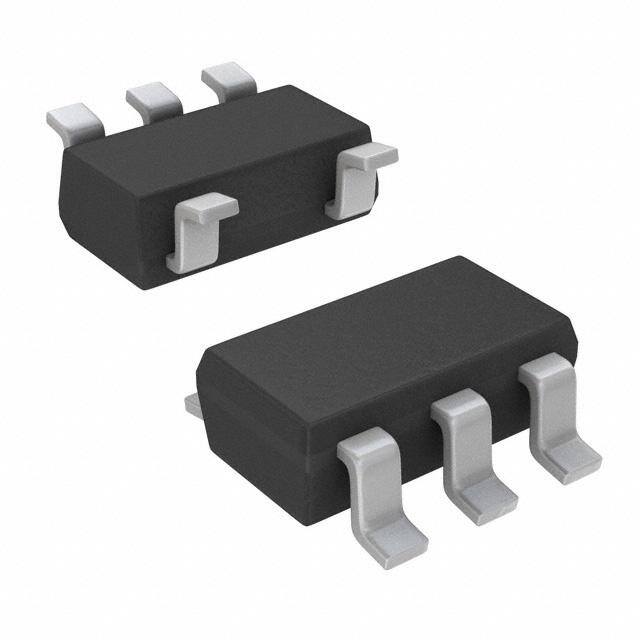
 Datasheet下载
Datasheet下载

